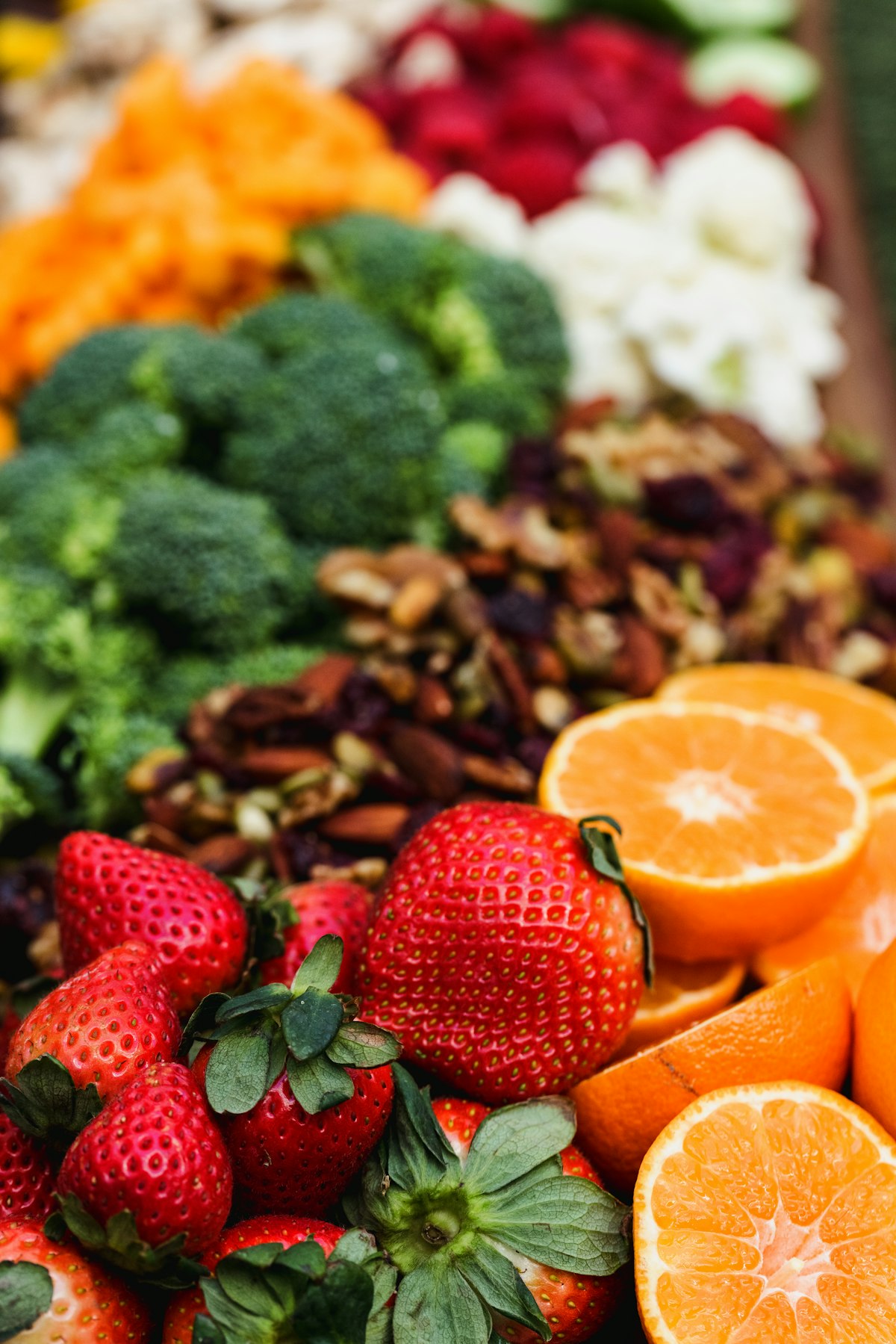Your immune system is your body’s natural defense against infections, viruses, and chronic illnesses. In today’s fast-paced world, many Americans face stress, poor diet, and lack of rest—all of which can weaken immunity. While there’s no magic pill to prevent sickness, the good news is that you can strengthen your immune system naturally through simple, evidence-based lifestyle choices.
This article will explore 15 simple and natural ways to boost your immune system, backed by scientific research and recommendations from U.S. health experts.
Why a Strong Immune System Matters
A strong immune system helps your body fight off colds, flu, and other infections, reduces recovery time, and lowers the risk of chronic conditions.
-
According to Harvard Medical School, healthy lifestyle habits such as diet, exercise, and stress management are the most effective ways to build immunity.
-
Research from the University of California, San Francisco found that stress can weaken immune responses, making individuals more susceptible to illness.
1. Prioritize Quality Sleep
Sleep is essential for immune function. During sleep, your body produces cytokines—proteins that fight infection and inflammation.
-
Aim for 7–9 hours of sleep nightly.
-
Create a consistent sleep routine by going to bed and waking up at the same time.
-
Keep your bedroom dark, cool, and free of screens.
👉 Scientific Insight: A study from the University of Chicago found that people who sleep less than 6 hours per night are more likely to catch colds than those who sleep 7 hours or more.
2. Eat a Nutrient-Rich Diet
Whole foods provide vitamins and minerals that directly support immunity.
Key immune-boosting foods include:
-
Citrus fruits (vitamin C)
-
Spinach and broccoli (vitamins A, C, and E)
-
Almonds and sunflower seeds (vitamin E)
-
Salmon and tuna (omega-3 fatty acids, vitamin D)
-
Yogurt and kefir (probiotics)
| Nutrient | Role in Immunity | Food Sources |
|---|---|---|
| Vitamin C | Stimulates white blood cells | Oranges, kiwi, bell peppers |
| Vitamin D | Enhances pathogen defense | Salmon, fortified milk, sunlight |
| Zinc | Supports wound healing, T-cell function | Shellfish, nuts, beans |
| Probiotics | Improve gut health, immunity | Yogurt, kefir, sauerkraut |
3. Stay Hydrated
Water is crucial for carrying oxygen to cells and flushing toxins from the body.
-
Aim for 8–10 cups daily (adjust for climate and activity).
-
Herbal teas like green tea also provide antioxidants.
4. Exercise Regularly
Moderate exercise improves circulation, allowing immune cells to move efficiently.
-
Aim for 150 minutes of moderate activity per week (walking, cycling, swimming).
-
Avoid excessive, intense workouts, which can temporarily suppress immunity.
👉 Research Spotlight: A study published in the British Journal of Sports Medicine found that people who exercised at least 5 days per week had fewer colds compared to sedentary individuals.
5. Manage Stress Levels
Chronic stress raises cortisol, which weakens immune responses.
-
Practice mindfulness, meditation, or yoga.
-
Engage in hobbies you enjoy.
-
Deep breathing exercises (like the 4-7-8 technique) help calm the nervous system.
6. Maintain a Healthy Weight
Excess body fat can cause inflammation, reducing immune efficiency.
-
Follow a balanced diet with portion control.
-
Combine healthy eating with consistent physical activity.
7. Get Enough Vitamin D
Vitamin D deficiencies are common in the U.S., especially during winter.
-
Spend 15–20 minutes in sunlight daily.
-
Include fortified foods or fatty fish in your diet.
-
Supplements may be necessary if levels are low (consult a doctor).
8. Wash Hands Properly
Simple hygiene is one of the most effective immune defense strategies.
-
Wash hands with soap for at least 20 seconds.
-
Use hand sanitizer (with 60% alcohol) when soap is unavailable.
9. Limit Processed Foods and Sugar
High sugar intake spikes inflammation and reduces immune cell activity.
-
Avoid sugary drinks, candy, and refined carbs.
-
Replace with whole foods, fruits, and vegetables.
👉 Scientific Note: A study from Loma Linda University found that high sugar consumption suppresses white blood cell activity for up to 5 hours.
10. Include Probiotics in Your Diet
A healthy gut supports overall immunity.
-
Eat probiotic-rich foods like yogurt, kimchi, sauerkraut, and kombucha.
-
Consider probiotic supplements if recommended by a healthcare provider.
11. Stay Physically Active Outdoors
Fresh air, sunlight, and physical activity combined boost immunity naturally.
-
Hiking, cycling, or simply walking outside improves mood and strengthens immune defenses.
12. Reduce Alcohol and Quit Smoking
Both alcohol and smoking weaken the immune system.
-
Smoking damages lung tissue and increases vulnerability to respiratory infections.
-
Excessive alcohol lowers white blood cell effectiveness.
13. Add Herbs and Spices to Meals
Certain herbs have immune-boosting properties.
-
Garlic contains allicin, known for its antimicrobial effects.
-
Turmeric’s curcumin compound has anti-inflammatory benefits.
-
Ginger reduces inflammation and supports digestion.
14. Keep Vaccinations Up to Date
Even with strong immunity, vaccines provide targeted defense.
-
Annual flu shots and other recommended vaccines (per CDC guidelines) reduce illness risk.
15. Foster Positive Social Connections
Loneliness weakens immunity, while strong relationships improve resilience.
-
Spend time with friends and family.
-
Join community activities or support groups.
👉 Research Insight: A study at Carnegie Mellon University found that socially connected individuals had better immune responses compared to isolated individuals.
Daily Immune-Boosting Routine Example
| Time of Day | Action | Benefit |
|---|---|---|
| Morning | Drink warm lemon water | Hydration, vitamin C |
| Midday | 30-minute walk outside | Exercise, vitamin D |
| Lunch | Salad with spinach, salmon, and nuts | Nutrient-dense |
| Afternoon | 10-minute mindfulness break | Stress reduction |
| Evening | Herbal tea (ginger/turmeric) | Anti-inflammatory |
| Night | 7–8 hours of quality sleep | Immune restoration |
Common Mistakes That Weaken Immunity
-
Relying solely on supplements instead of food.
-
Staying up late or sleeping irregularly.
-
Consuming too much fast food and sugar.
-
Overtraining without proper recovery.
-
Ignoring stress management.
FAQs About Boosting Immunity Naturally
Q1: Can supplements replace a healthy diet for immune health?
No. While supplements may help in cases of deficiencies, whole foods provide fiber, antioxidants, and phytonutrients that pills cannot match.
Q2: Does vitamin C prevent colds?
Vitamin C does not prevent colds, but research from University of Helsinki shows it may reduce the severity and duration of symptoms.
Q3: How long does it take to strengthen the immune system naturally?
Improvements can be seen within weeks, especially with better sleep, diet, and reduced stress, though long-term consistency brings the best results.
Q4: Do probiotics really work for immunity?
Yes. Probiotics help balance gut bacteria, which plays a key role in immune defense, according to research from Harvard Medical School.
Q5: Is exercising daily too much for immunity?
Moderate daily activity boosts immunity, but intense overtraining without rest may temporarily weaken immune defenses.




